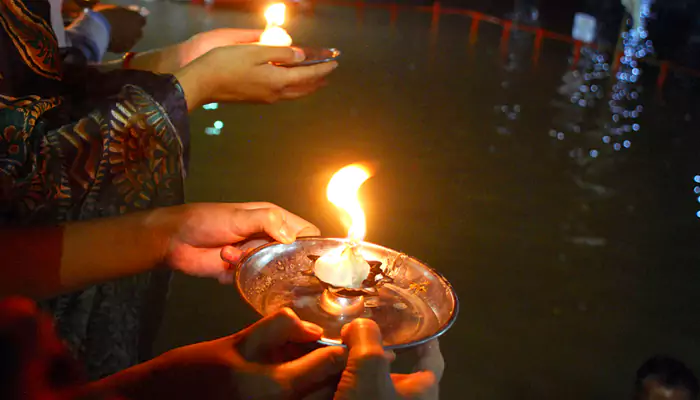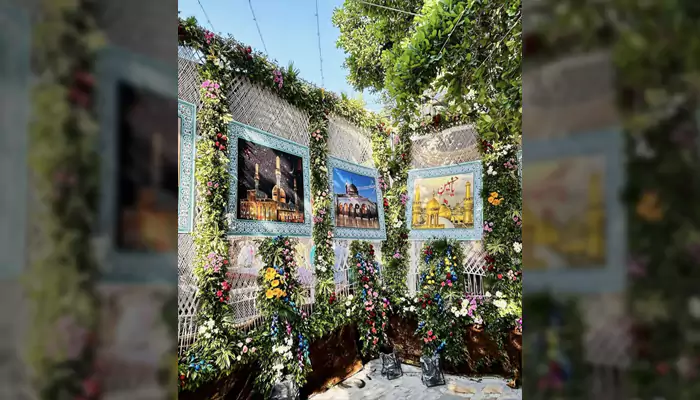How Water Shapes Culture – Celebrating World Water Day With Unique Water Rituals And Traditions
- Admin
- 1 year ago
- 4 minutes read

On March 22, as we observe World Water Day, it’s a poignant moment to reflect not just on the critical importance of water for life but also on how deeply water is woven into the fabric of cultures worldwide.
Water, the source of life, has shaped civilizations, religions, and rituals throughout history. This day offers us a unique lens to explore the diverse and rich ways in which water influences cultures, manifesting in a myriad of traditions and rituals that celebrate, honour, and respect this vital resource.
Water as a Symbol of Purification and Renewal
In many cultures, water is seen as a powerful symbol of purification, cleansing not just the physical body but also the spirit. The Hindu festival of Kumbh Mela, one of the largest religious gatherings in the world, exemplifies this belief. Millions of devotees flock to the banks of sacred rivers like the Ganges, Yamuna, and Sarasvati to bathe in the waters, believed to cleanse sins and bring spiritual renewal.
Similarly, in Japan, the Shinto religion practices Misogi, a ritual of purification involving the immersion of oneself in a natural body of water. This act is thought to cleanse the participant of impurities and pollution, renewing both their physical and spiritual well-being.
Water as a Source of Life and Fertility
In agricultural societies, water is revered as a giver of life and a crucial element in ensuring fertility and abundance. The Balinese Hindu water temple system, known as Subak, illustrates this beautifully. This complex network of canals, tunnels, and temples is not only an irrigation method but also a spiritual practice that harmonizes humans, God, and nature to ensure a bountiful harvest.
The Ancient Egyptians, living by the Nile, developed a rich culture where water was central to their existence. The inundation of the Nile was celebrated as an annual rebirth of the land, vital for their agriculture, symbolizing fertility and renewal. The rituals and festivals surrounding this event highlighted their deep reverence for water’s life-giving properties.
Water in Healing and Well-being
Water’s role in health and well-being is recognized and celebrated in numerous cultures. The Japanese hot spring baths, or Onsen, are a testament to this belief. These natural hot springs, rich in minerals, are not just places for relaxation and socialization but are deeply embedded in Japanese culture as spaces for healing and rejuvenation. The therapeutic qualities of these waters are celebrated, and their use is ingrained in a ritual that promotes physical and emotional well-being.
In many Native American cultures, water is considered sacred and used in various ceremonies and rituals for healing purposes. The Sweat Lodge ceremony, for example, uses steam from water poured over hot stones to purify and heal the participants, facilitating a deep spiritual connection with the elemental forces of nature.
Celebratory Water Festivals

Water festivals across the globe highlight the joy and celebration associated with water. The Songkran festival in Thailand, marking the Thai New Year, is perhaps one of the most vibrant examples. It involves the throwing of water, symbolizing the washing away of bad luck and sins and the welcoming of the new year with a fresh start. This joyous occasion reflects the significance of water in cleansing, renewal, and communal harmony.
Similarly, the Loi Krathong festival sees the Thai people floating baskets decorated with flowers and candles on rivers. This ritual, a form of offering and thanksgiving to the water spirits, showcases the deep cultural significance of water as a source of life and the respect and gratitude the people hold towards it.
As we celebrate World Water Day and reflect on these unique water rituals and traditions, we’re reminded of the profound ways in which water shapes our identities, cultures, and spiritual beliefs. These traditions not only highlight the universal reverence for water across cultures but also underscore the critical need to protect and preserve this precious resource.












